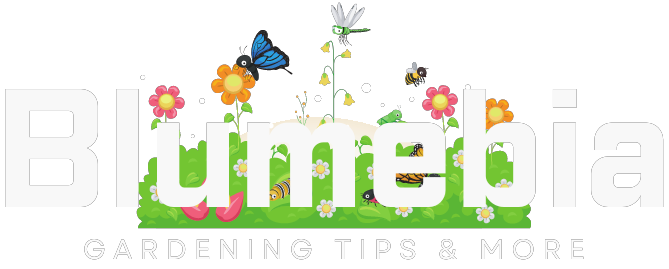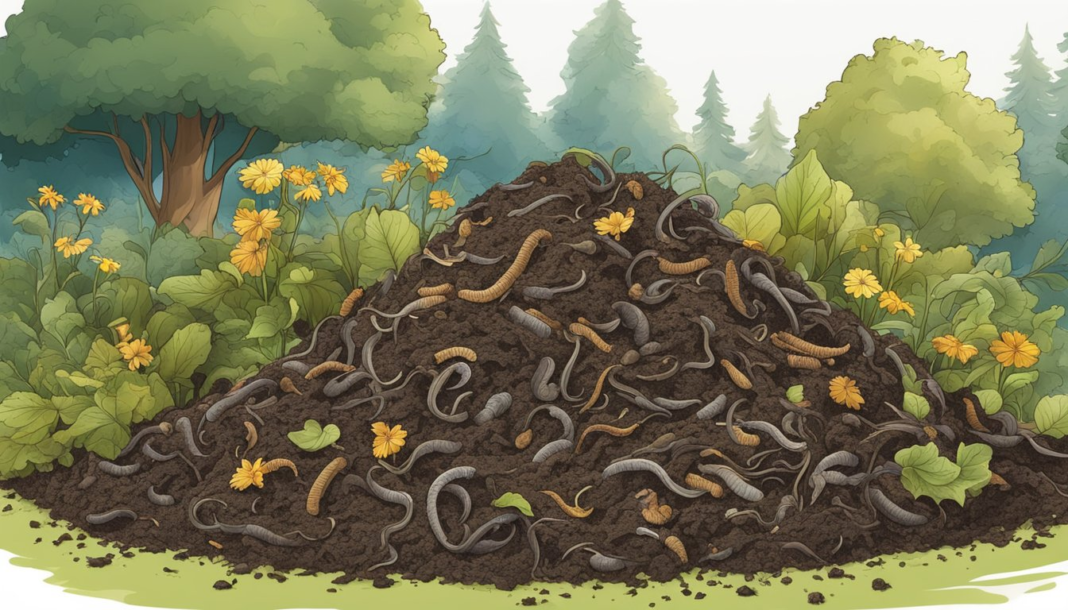Gardening is a rewarding activity that offers numerous benefits, from improving mental health to providing fresh produce. An essential aspect of cultivating a successful garden is maintaining healthy soil, which often hinges on good compost. Compost enriches the soil with nutrients, enhances moisture retention, and encourages microbial activity, all of which are vital for robust plant growth.
When it comes to choosing the best compost for gardens, various options are available, each with their unique composition and benefits. From organic blends to specialized formulations, understanding what works best for your garden can make a significant difference in your results. Specific products can provide enhanced nutrition for plants or support different growing conditions, making it critical to find the right type for your garden’s needs.
As we consider our options, several factors should guide our purchasing decision. We need to pay attention to the compost’s ingredients, as well as its texture and nutrient content. Additionally, the way compost is packaged and its usability in our gardening context, such as ease of storage and application, can influence our choice. Selecting the right compost will set the foundation for a flourishing garden. Let’s explore some of the best garden compost options available to help us make an informed decision.
Best Garden Compost
We have researched and compiled a list of the best garden compost options available. These products are chosen for their quality, effectiveness, and ability to enrich soil, ensuring optimal growth for your plants.
Blue Ribbon Organic Compost
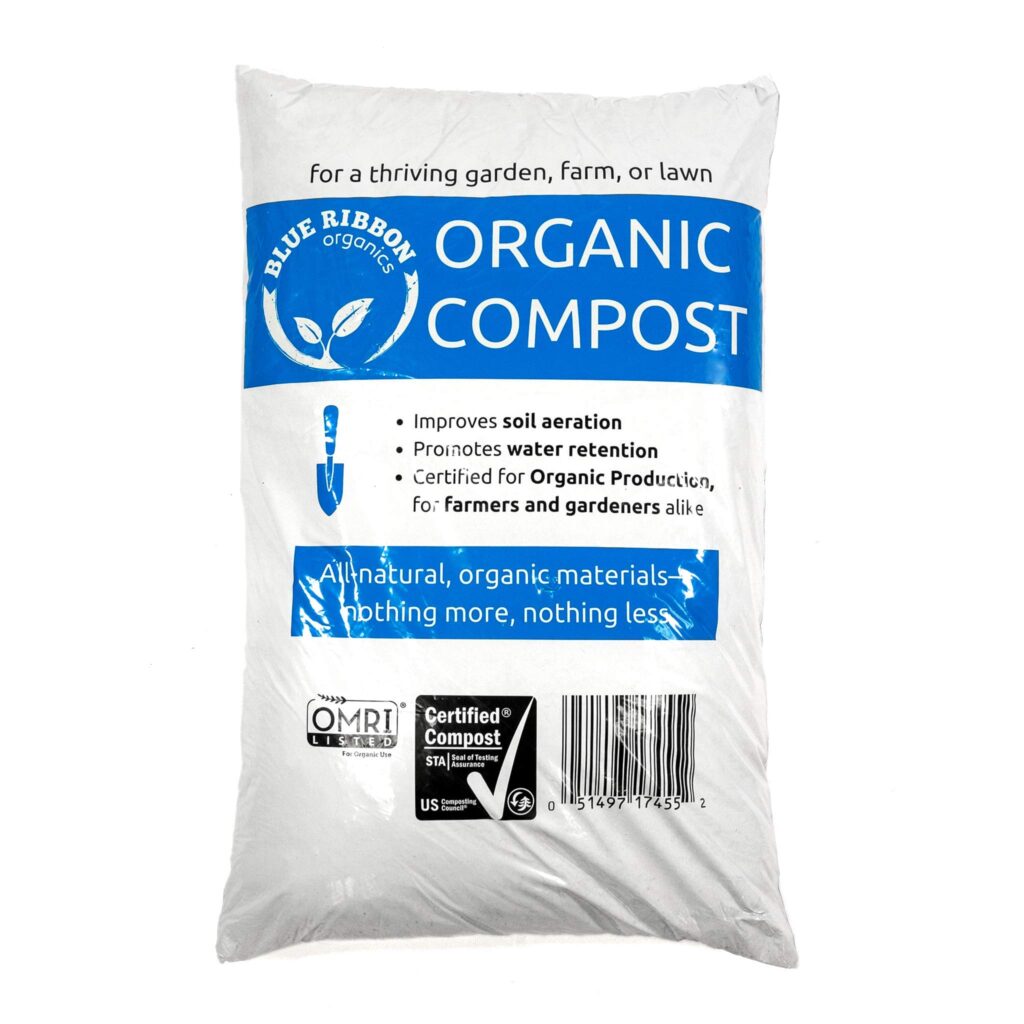
This high-quality compost is a solid choice for any gardener looking to enrich their soil with natural nutrients.
Pros
- Improves soil structure and increases aeration
- OMRI certified for organic use
- Rich in nitrogen from natural materials
Cons
- Moisture content may vary between bags
- Occasionally, bags may arrive damaged
- Price can fluctuate on different platforms
We appreciate the commitment of Blue Ribbon Organics to creating a nutrient-rich product. Their compost is derived from carefully processed food and yard waste, ensuring that it enhances the soil’s health effectively. It can help jump-start a variety of plants, from vegetables to fruit trees, making it a versatile option for many gardening needs.
Using this compost can significantly increase water retention and provide essential nutrients like nitrogen, phosphorus, and potassium. The rigorous processing that it undergoes also ensures that it is free of pathogens and weed seeds, which many gardeners find reassuring.
As a natural product, the variability in moisture content might affect usability at times. Some customers have noted that certain bags arrived slightly lighter or in less than perfect condition, though most feedback highlights the compost itself as exceptionally effective. Overall, Blue Ribbon Organic Compost stands out in the market for its quality and organic certification.
Michigan Peat Compost and Manure Blend
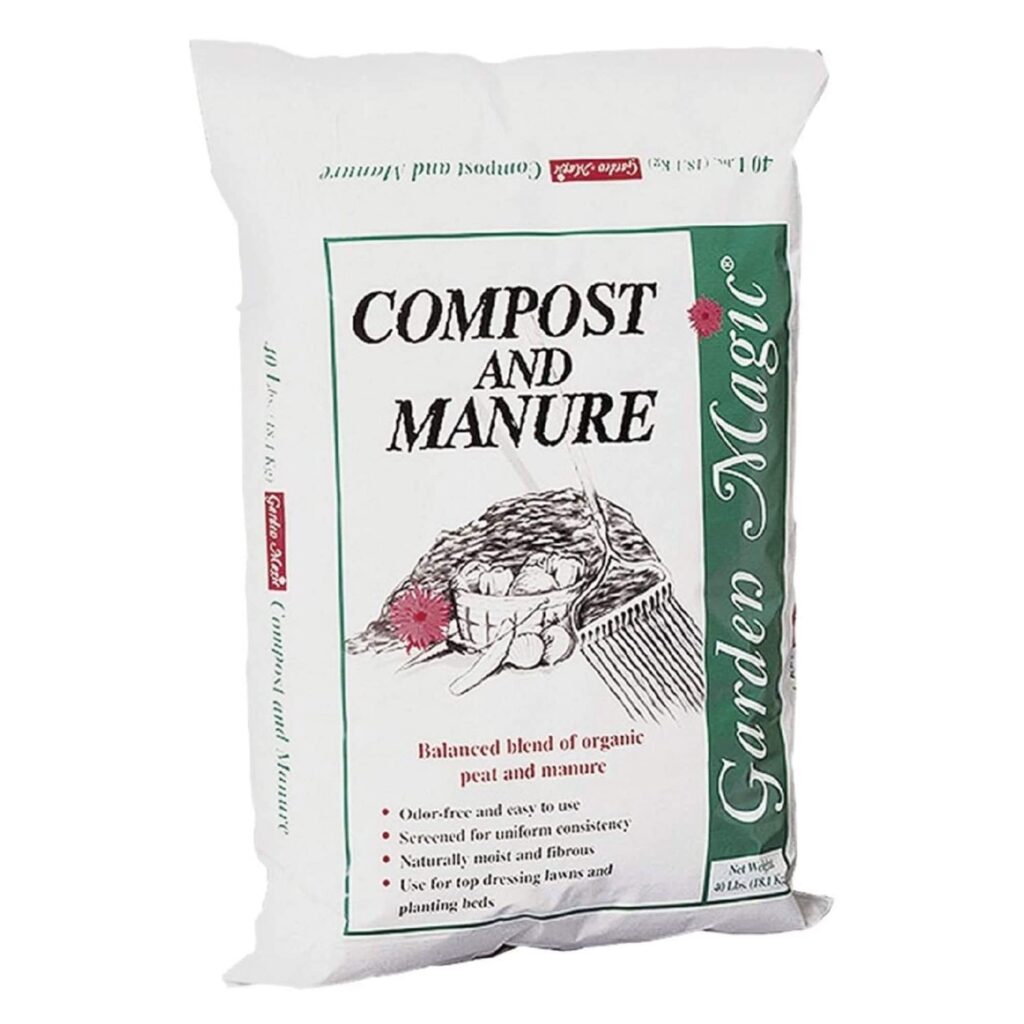
This product offers a solid option for enhancing the health of our gardens and lawns.
Pros
- Provides essential nutrients and minerals for plant growth.
- Odorless blend makes it pleasant to use.
- Versatile for various gardening applications.
Cons
- Higher price compared to bulk options.
- Coverage may require multiple bags for larger areas.
- Some users report irregular packaging.
The Michigan Peat Compost and Manure Blend stands out for its nutrient-rich formula, making it an effective choice for any garden. This product blends natural organic reed sedge peat with compost animal manure, ensuring our plants receive the crucial nourishment they need for optimal growth. Its 40-pound bag is convenient, covering an area of about 0.75 cubic feet, which suits smaller gardening projects well.
One appealing feature is the absence of unpleasant odors, allowing us to work comfortably in our gardens. This mix helps improve soil drainage, particularly beneficial for raised garden beds and planters. Its uniform consistency makes it easy to apply; simply scatter it and let it enhance our soil quality right away without any additional mixing.
While the product is effective, we should note that it comes at a premium price point compared to buying in bulk. Those with larger areas to cover might need more than one bag to achieve complete coverage. Despite these considerations, many users appreciate the positive impact this compost blend has on their plant health, encouraging vibrant blooms and bountiful vegetables.
Charlie’s Compost
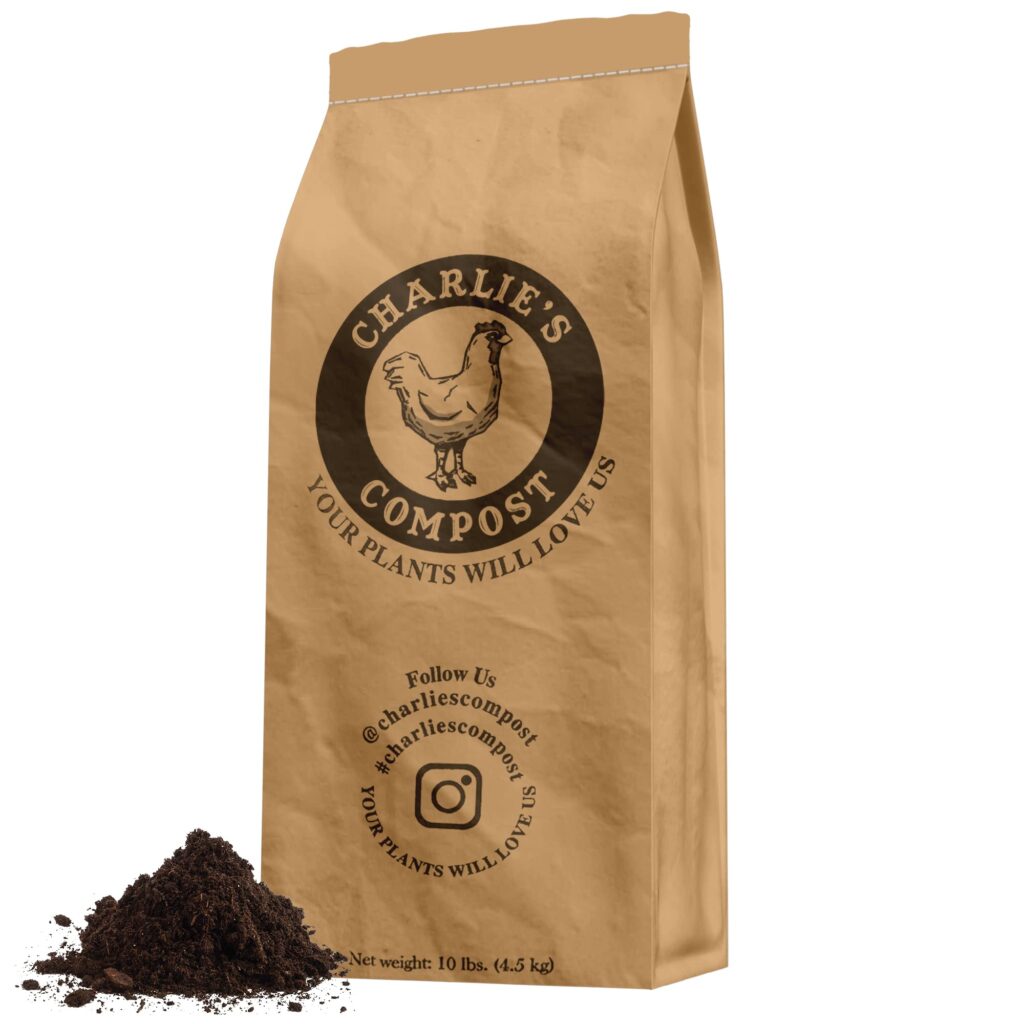
Charlie’s Compost is a reliable choice for anyone looking to enhance their garden with quality organic material.
Pros
- Enriches soil and boosts plant growth.
- Versatile for various gardening applications.
- Low-odor formula makes it suitable for small spaces.
Cons
- Can be slightly pricey.
- Some users note mixed results with specific plants.
- Packaging size may be insufficient for larger gardens.
This organic compost stands out for its ability to enrich soil conditions effectively. As a soil amendment, it contributes essential nutrients, improving the overall structure, which helps plants flourish. Many appreciate its versatility, finding it suitable for garden beds, potted plants, and lawns alike.
Users highlight the convenient 10lb bag that simplifies application. The slow-release nutrient formula ensures that plants receive consistent nourishment over time. This means less worry about whether your plants are getting the food they need for optimal growth.
Furthermore, the low-odor characteristic of Charlie’s Compost makes it appealing for urban gardeners concerned about unpleasant smells. Creating compost tea is another advantageous feature, allowing for a quick boost in nutrients without any fuss. For those eager to jumpstart their composting, this product proves to be a valuable addition to any gardening toolkit.
Coco Bliss Organic Coco Coir
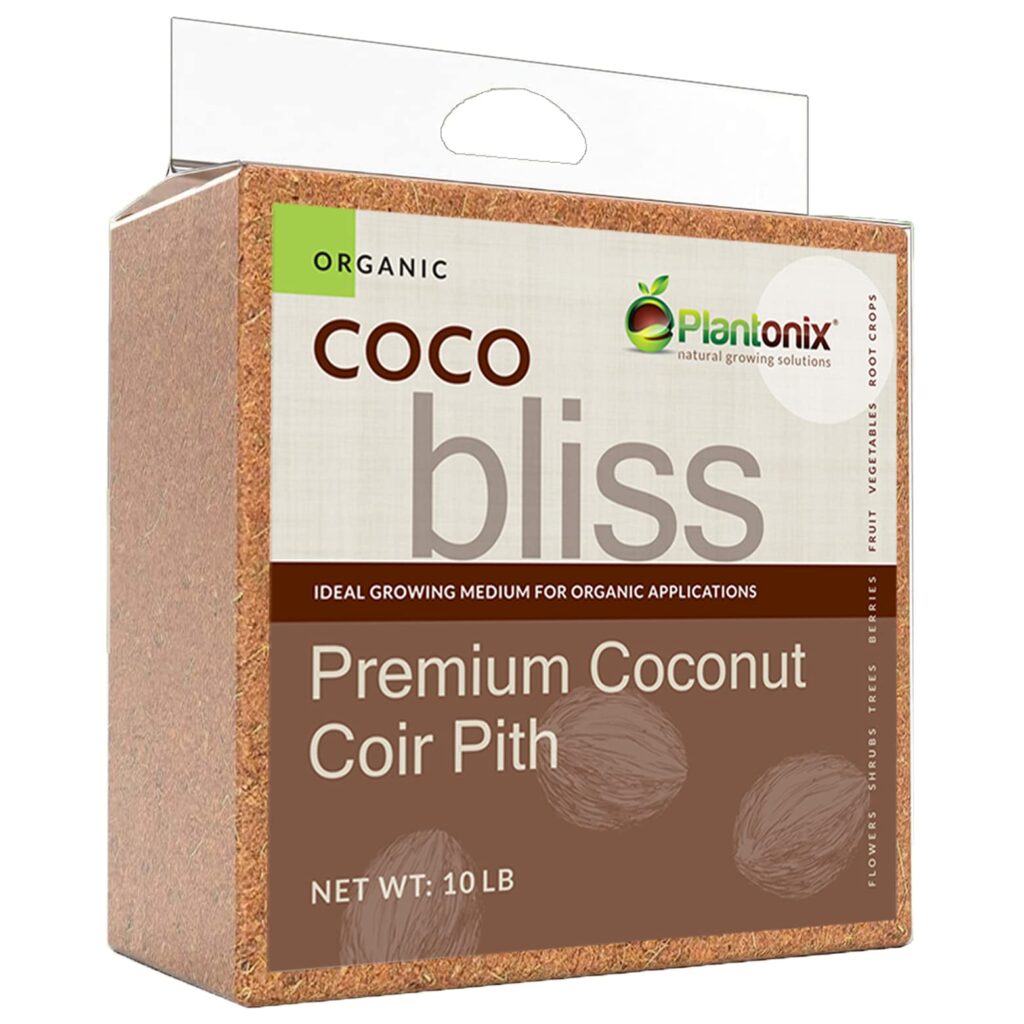
Coco Bliss serves as a reliable choice for those seeking an organic growing medium.
Pros
- Made from pure, pre-screened coconut fiber, ensuring no impurities.
- Retains moisture well, supporting plant hydration effectively.
- Environmentally sustainable option, sourced from renewable coconut husks.
Cons
- May require additional preparation before use to maximize effectiveness.
- Initial dustiness when unpacking could be a concern for some.
- Limited availability at local stores might necessitate online ordering.
Coco Bliss offers a clean and clean solution for plant enthusiasts. Its coconut fiber substrate is pre-rinsed and pre-screened, ensuring that you receive a product free from unwanted particles. This feature sets it apart from many other options on the market, making it a trusted choice for our gardening needs.
The moisture retention capabilities of this coir are remarkable. Once expanded, it holds water efficiently, which is crucial for keeping our plants hydrated, especially in dry conditions. This aspect also works to improve nutrient uptake, thanks to its neutral pH level.
Opting for Coco Bliss is an environmentally friendly choice as well. The biodegradable nature of this product, derived from coconut husks, means we can cultivate our gardens without fearing damage to natural ecosystems. This commitment to sustainability resonates with gardeners looking to make responsible choices.
R&M Organics Compost
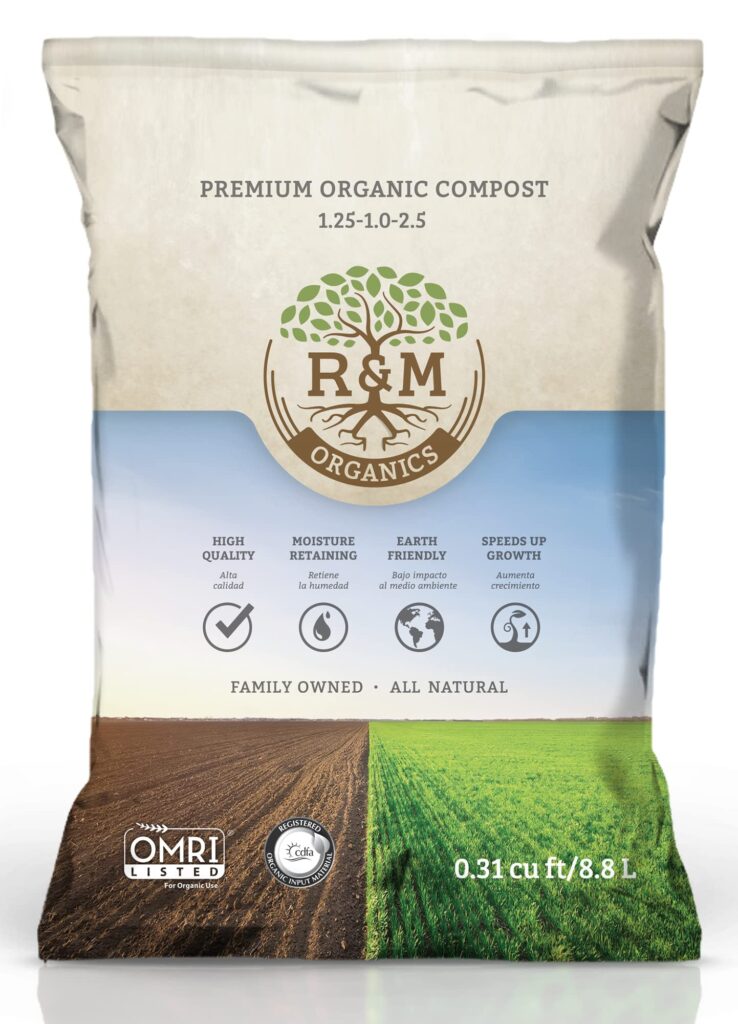
This compost offers a convenient way to enrich our gardens and improve plant health.
Pros
- Low odor makes it suitable for indoor use.
- Retains moisture, reducing watering frequency.
- Easy to apply, needing only a thin layer for effective results.
Cons
- Smaller bag size may not cover larger areas.
- High nutrient content may require careful application.
- Limited use for specific types of plants.
When we consider enhancing our garden, using R&M Organics Premium Organic Compost presents a practical solution. Its formulation, derived from fully composted dairy cow manure, ensures that we are adding vital nutrients to our soil. This can lead to vigorous plant growth, whether we are tending to vegetables or flowers.
One noteworthy aspect is the low odor associated with this compost. Many worry about unpleasant smells when using organic options indoors, but this product has an earthy scent that is barely noticeable, making it ideal for indoor gardening enthusiasts.
Moisture retention is another benefit worth mentioning. With the ability to keep soil moist longer, the compost can help minimize the time we spend watering our plants. This efficiency not only saves us time but also can reduce our overall water costs.
In case we have larger projects in mind, it’s important to consider the smaller bag size. While it packs a potent punch in terms of nutrients, users may find that multiple bags are necessary for extensive areas. Regardless, the ease of application is a major highlight, allowing us to achieve great results with a thin layer of just a quarter inch.
Buying Guide
Choosing the best garden compost involves evaluating several key factors. Here are the essential features we should consider:
Organic Matter Content
- Look for high organic matter content, which helps improve soil structure.
- Aim for compost with at least 30% organic material.
Nutrient Levels
- Check for a balanced mix of nutrients: nitrogen, phosphorus, and potassium (NPK).
- Select compost that fits the specific needs of our plants.
Texture and Consistency
- Good compost should be crumbly and easy to spread.
- Avoid compost that is overly coarse or contains large chunks.
Aroma
- Quality compost has a rich, earthy smell.
- A sour or pungent odor may indicate issues during the composting process.
Source Materials
- Research the materials used in the compost.
- Ensure it’s made from safe, non-toxic ingredients, avoiding synthetic chemicals.
Packaging and Quantity
- Consider how much compost we need for our garden.
- Larger bags or bulk options may offer better value for our projects.
Certifications
- Look for certifications from recognized organic standards.
- This ensures that the compost meets safety and quality benchmarks.
By focusing on these criteria, we can make informed decisions and choose compost that supports healthy soil and plant growth.
Frequently Asked Questions
We often encounter various inquiries regarding compost and its applications in gardening. Here, we address common questions and provide focused insights to help enhance your gardening experience.
What is the most effective compost for a vegetable garden?
For vegetable gardens, compost that is rich in nutrients is ideal. Look for compost containing a balanced mix of green and brown materials, ensuring it provides essential nutrients for optimal plant growth.
How does bagged compost compare to homemade compost for garden use?
Bagged compost offers convenience and consistency, often tested for nutrient content. Homemade compost can be tailored to specific needs and is typically more cost-effective, but its nutrient balance may vary based on the materials used.
Which type of compost is best for promoting flowering plant growth?
Compost rich in organic matter and nutrients, especially phosphorus, is beneficial for flowering plants. Look for formulations specifically designed for blooms, often labeled as flower or bloom compost.
Can you recommend a high-quality organic compost suitable for general gardening?
Many brands offer high-quality organic compost, such as Black Gold and Coast of Maine. These products are made from natural materials and promote healthy soil and plant growth across various gardening applications.
What characteristics define high-quality compost for gardening purposes?
High-quality compost should smell earthy and be dark in color, free from visible contaminants. It should have a crumbly texture, indicating that it has undergone sufficient decomposition.
What are the advantages of using organic compost in a garden?
Using organic compost improves soil structure, enhances nutrient availability, and promotes healthy microbial activity. It can also help retain moisture and reduce the need for chemical fertilizers in your garden.
